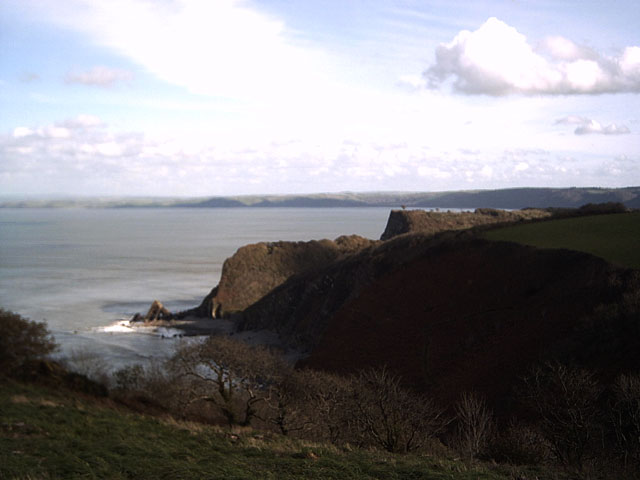Windbury Head on:
[Wikipedia]
[Google]
[Amazon]
 Windbury Head is the site of an
Windbury Head is the site of an
 Windbury Head is the site of an
Windbury Head is the site of an Iron Age
The Iron Age is the final epoch of the three-age division of the prehistory and protohistory of humanity. It was preceded by the Stone Age (Paleolithic, Mesolithic, Neolithic) and the Bronze Age (Chalcolithic). The concept has been mostly appl ...
hill fort
A hillfort is a type of earthwork used as a fortified refuge or defended settlement, located to exploit a rise in elevation for defensive advantage. They are typically European and of the Bronze Age or Iron Age. Some were used in the post-Roma ...
on the Hartland Peninsula, just north of Clovelly
Clovelly () is a privately-owned harbour village in the Torridge district of Devon, England. The settlement and surrounding land belongs to John Rous who inherited it from his mother in 1983. He belongs to the Hamlyn family who have managed th ...
in North Devon
Devon ( , historically known as Devonshire , ) is a ceremonial and non-metropolitan county in South West England. The most populous settlement in Devon is the city of Plymouth, followed by Devon's county town, the city of Exeter. Devon is ...
, England. Most of the fort has been lost to coastal erosion
Coastal erosion is the loss or displacement of land, or the long-term removal of sediment and rocks along the coastline due to the action of waves, currents, tides, wind-driven water, waterborne ice, or other impacts of storms. The landward ...
, but the southern ramparts still exist at approximately above sea level.R. R. Sellman, ''Aspects of Devon History'' (Devon Books, 1985), p. 11 (map).
References